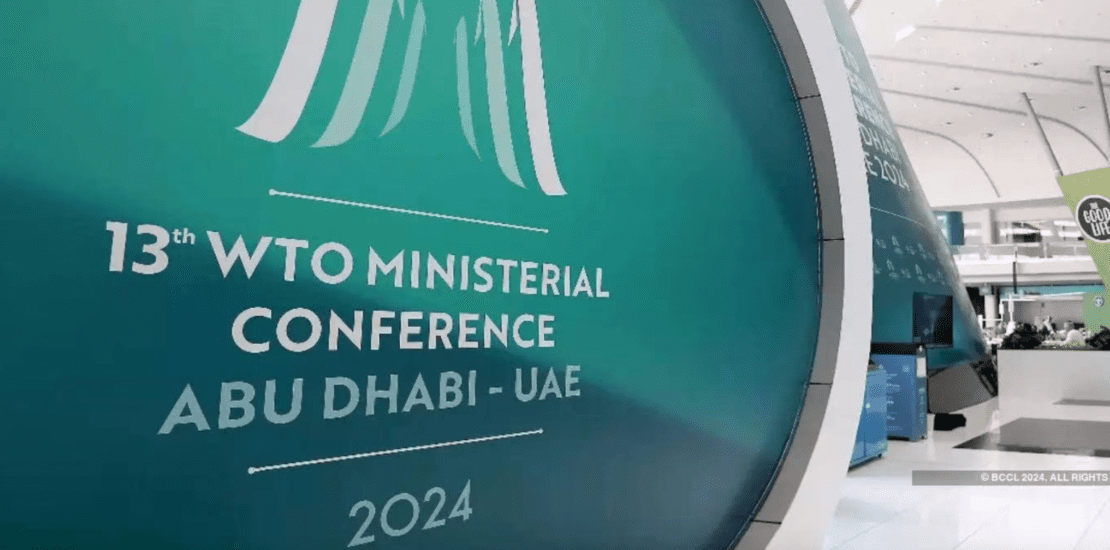13th WTO Ministerial Conference: India’s stand on e-commerce moratorium needs balanced approach
- October 28, 2024
- Posted by: Anil Trigunayat
- Category: India

India’s stance on the e-commerce moratorium reflects its broader goal of securing digital sovereignty and protecting domestic interests. However, imposing custom duties that are not flexible carries the risk of stifling innovation and potential isolation from global technological advances.

The decision early this year at the World Trade Organization’s (WTO) 13th Ministerial Conference (MC13) to extend the e-commerce moratorium until March 2026 has ignited debates within the global trade community. This means agreeing to not set taxes on digital trade.
Advthttps://506b266ec9ad7f73c1fda986aadd1db2.safeframe.googlesyndication.com/safeframe/1-0-40/html/container.html?n=0While most WTO members supported the extension, India, along with South Africa, strongly opposed it, citing revenue losses, digital inequality, and market domination by global tech giants. India’s stance is rooted in the belief that the existing moratorium disproportionately benefits developed countries while restricting developing economies from tapping into vital revenue streams.
Event
6th PSU Residential Summit


- Thu, 21 Nov 2024
- KOCHI, India
Event
ETGovernment Vision Conclave


- Fri, 13 Dec 2024
- The Centrum, Lucknow
Register NowHowever, this position, while valid in many respects, also raises concerns about potential disruptions to India’s broader digital ambitions, such as its push for Digital India and integration into global value chains.
The Case for India’s Opposition: Fiscal Losses and Market Imbalance
India’s opposition to the moratorium stems primarily from concerns over fiscal losses. According to a study by the United Nations Conference on Trade and Development (UNCTAD), developing countries are estimated to lose $10 billion annually from the moratorium due to the inability to impose tariffs on electronic transmissions.
Advthttps://506b266ec9ad7f73c1fda986aadd1db2.safeframe.googlesyndication.com/safeframe/1-0-40/html/container.html?n=0For a country like India, where customs duties form a substantial part of government revenue, this loss is significant. The rapid growth of digital consumption in India exacerbates the issue, with more Indians consuming digital content, such as streaming services, software, and e-books.
Moreover, the ambiguity surrounding what exactly constitutes an “electronic transmission” adds to India’s concern. The moratorium does not cover physical goods, but the broad scope of the term “electronic transmission” has left the door open for large multinational firms to interpret this grey area.
Balancing Protectionism and Global Integration
While India’s stance is justifiable from a revenue perspective, there are risks associated with it. Moratorium reduces barriers to digital trade, facilitating participation in global value chains. Liberal customs duties lower costs for businesses, which can boost trade and investment, particularly in digital services.
For example, the global semiconductor design industry, which is crucial for India’s aspirations to become a global tech hub, relies heavily on cross-border data flows. Imposing customs duties on such digital transactions could raise costs for domestic firms and create friction in international trade, and can slow down India’s digital growth.
The challenge for India is to strike a balance between protecting its domestic market and remaining integrated with the global digital economy.
Challenges to India’s Current Position
India has expressed concerns that the moratorium favours multinational companies at the expense of small and medium-sized enterprises (SMEs) and startups. It is worth noting that many SMEs and startups benefit significantly from the flow of digital goods and services.
For example, Indian firms providing software as a service (SaaS), such as Zoho and Freshworks, rely on the seamless cross-border transmission of digital services. Imposing any harsh customs duties could hinder their ability to compete globally and increase costs for Indian businesses exporting digital products.
By lowering or putting reasonable trade barriers, Indian companies are better positioned to integrate into global value chains and expand their operations internationally.
This push could also conflict with the country’s broader goal of fostering innovation and creating a robust digital economy. The moratorium enables Indian firms to access global technologies and digital products at effectively lower costs, fostering innovation in evolving priority sectors like artificial intelligence (AI), cloud computing, and fintech.
Priorities for MC14: Crafting a Balanced Digital Strategy
As India prepares for the next round of negotiations at MC14, the dates for which have not been finalised yet, it is imperative for the country to focus on a balanced approach.
India should push for a clearer definition of what constitutes “electronic transmissions”. One potential approach is to adopt a classification system that aligns with existing WTO frameworks (like the General Agreement on Trade in Services , or GATS) but is refined to reflect the nuances of the digital economy.
For instance, cross-border transmission of software could be considered “goods” while cloud-based services could be classified as “services”. This can eventually play out as India imposing duties on specific digital goods while ensuring that essential services like digital commerce, AI tools and cloud infrastructure remain ‘reasonably exempted’ from tariffs.
At MC14, India should also focus on pushing for incentives for MSMEs, ensuring that they benefit from digital trade. This could involve specific WTO provisions to ease access to technology and markets for such smaller players.
India’s stance on the e-commerce moratorium reflects its broader goal of securing digital sovereignty and protecting domestic interests. However, imposing custom duties that are not flexible carries the risk of stifling innovation and potential isolation from global technological advances.
(Anil Trigunayat is a Retd. IFS Officer, and has served as the trade commissioner in New York, USA. He is also an honorary member of the International Trade Council, Brussels, and a Distinguished Fellow at Vivekananda International Foundation; Views are personal)
